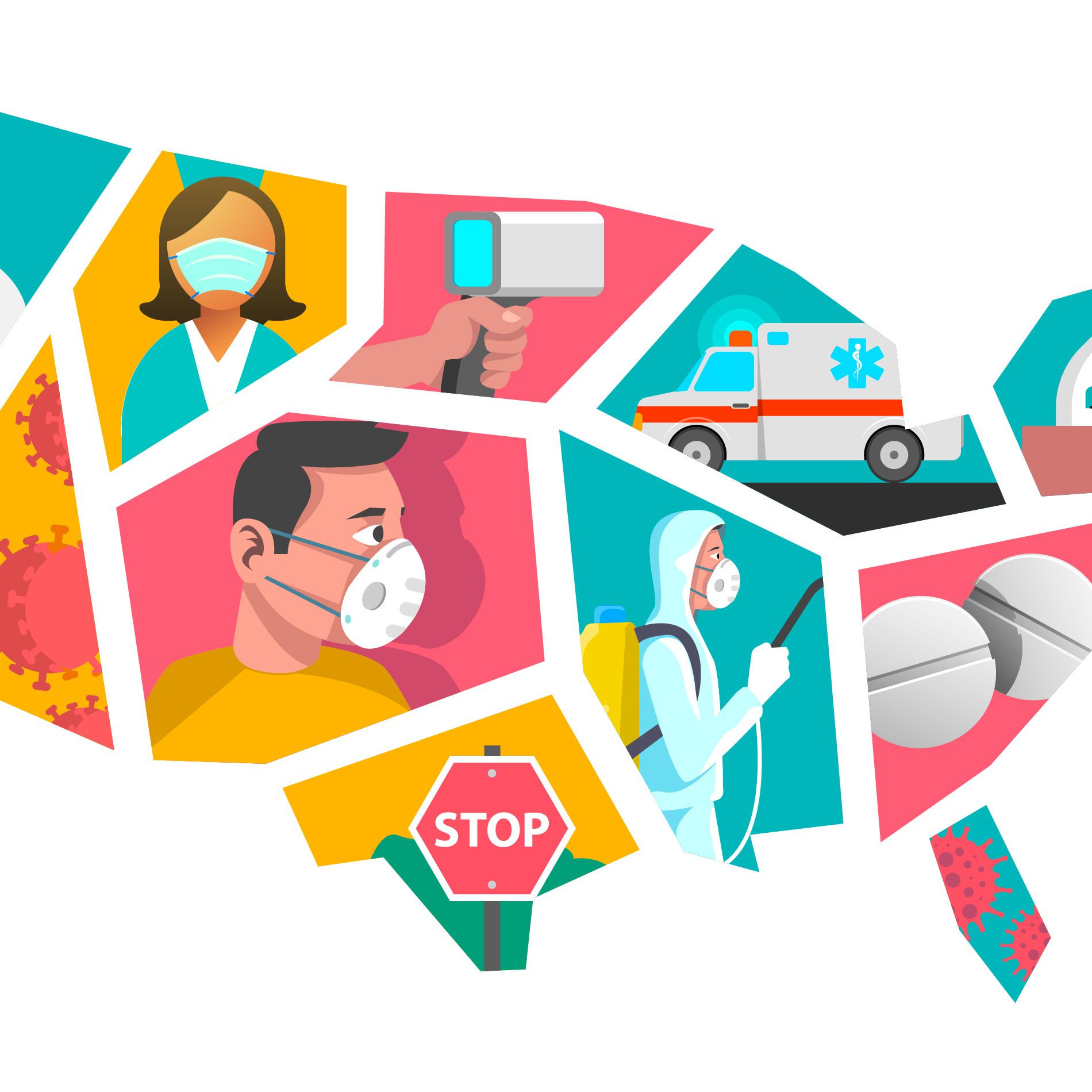Sign Up for Our
Updates
The meta-definition of health consumerism suggests that: “It is a movement that advocates patients' involvement in their own healthcare decisions. It is a shift away from the 'doctor says/patient does' model towards a 'working partnership' model.”
In operational terms that would require a different commissioning process with contracts including a requirement for providers to work closely with patients on co-production, co-delivery elements of the contracted service. This is currently gaining some traction and although there is some real experience on the ground, it is far from conclusive proof that this is systematically happening.
What is required to hasten the shift?
From a provider’s perspective, the shift toward co design and production would require them to actively implement:
- Closer clinician-patient communications and cooperation
- Patient buy-in and accepting personal responsibility for their health and treatment (i.e. compliance with treatment recommendations and medication)
- Patient lifestyle and wellness awareness as an integral part of the service delivered
- Preventative and healthy activities and habits measured and monitored as part of any follow-up.
Clearly, these are important influencers in the provider-patient partnership. Healthcare communications plays an important role in fostering a positive relationship and enhancing healthy outcomes. The provider needs to build specific mechanisms into their service delivery and performance management systems to ensure this happens.
From a patient perspective, the definition is simpler and initial, will most certainly focus on the access, choice and health literacy perspectives.
- Ease of access to services; user friendly booking, convenient appointment times and in local locations with good parking
- Speedy access for diagnosis and initial appointments (anecdotally, 18 weeks seems too long to wait for an initial consultation)
- Choice of treatments (types and locations)
- Good patient experience; clinicians who explain in layman’s terms and treat patients
- with respect and dignity, access to records, test results and information about their condition/illness, internet sources to follow up.
Whilst there are some exemplars around that demonstrates this work in action, the NHS is far from a systematic solution to this as it battles rising demand, limited supply and now the pandemic. Our current situation may slow the pace of this down, but it is unlikely to turn it around or stop it completely. It would seem that health consumerism is here to stay.
The rise of empowered consumers
In the US, healthcare delivery systems are already well down this path because of the way their services are funded and that people have to purchase insurance in order to access blanket-cover healthcare. Their market is driven by health consumerism as people choose who to purchase their healthcare plans from. Previously, “passive patients” have become empowered consumers, due in large measure to the swing of the financial burden to their personal finances. With that money-shift, consumers naturally search for and expect greater value and quality of service, timely and convenient care, transparent information, and a positive (if not outstanding) patient experience.
In the UK our NHS is state funded (majority of services) with 3rd sector organisations and charities supplementing aspects of service delivery. Health consumerism is limited to fundraising for “favourite causes” that support NHS services e.g. hospice care, cancer support services, air ambulance etc.
UK service provision is complex with all healthcare integrated under the NHS banner; primary, ambulatory, secondary care with connecting links into social care and support. In the main, NHS patients are still relatively passive. Whilst many have taken on board the choice agenda, there is relatively little ‘push-back’ from patients who make real demands of the service in terms of location, choice of specialist or treatment type.
Existing healthcare models are being challenged to find and deliver new sources of value (from commissioner and patient perspectives) and to develop innovative approaches to make health care less complicated, and to improve outcomes:
- Health care is trying to move toward value, not volume, as a central organising principle, but that will be difficult if there is no demand management mechanism employed. It will impact how patients are cared for, how clinicians and hospitals are paid, and how those involved in health improvement and disease prevention engage with the market. Commissioners and service providers will need to resolve the tension between those designing the systems using co-design and co-production methodologies and those on the front line that are hardwired to deliver care within a traditional framework.
- Those paying the bills—government, commissioners and increasingly, individuals using private medical care—are looking for better value, more responsive customer experience and better outcomes. This includes patients who have researched and found drug or surgical treatments that may not yet be licenced or adopted in NHS services.
- Entrepreneurs, retail organisations, and technology companies see opportunity in the large and growing health care market with wearable technology that tracks wellness, promotes healthy lifestyles and improves access to testing, diagnostics and advice/medication compliance.
Moving to a patient-centric system.
So, the real challenge faced by the health care industry is how to step up to a consumer-centric system.
Due to increasing demand on the NHS and the likelihood of capped funding remaining, it is highly probable that more affluent consumers will choose elements of private healthcare provision and shoulder the financial burden to improve their access, and speed of diagnosis and treatment. Health care industry providers must weigh up innovations and actions they can take to build lifelong connections with consumers. They will need to be practical solutions that;
- Improve access to information and integrated care records regardless of location
- Achieves genuine connectivity of IT systems and security of medical information
- Delivers swift and simplified navigation through the healthcare system by those who may not have high levels of health literacy
- Delivers a customer centric patient experience that meets the expectations of seasoned consumers
An obvious starting point would be to concentrate on the “early adopter consumers” who are less concerned with traditional relationships with healthcare professionals (GPs etc) and who prize the remote access and control that wearable tech gives them. This demonstrates their openness to change and test things out.
There are some great examples of this work going on already. Unfortunately, the NHS generally struggles to bring together and share learning from innovations such as this and are condemned to repeat the mistakes of the past (which is time consuming and very wasteful).
Healthcare providers, commissioners and marketing professionals need to recognise that consumers are learning healthcare faster than healthcare is learning consumerism. Savvy marketing has shifted patient focus from the “one stop primary care provider” to the latest health and wellbeing App, the latest Apple Watch/fitbit or website, social media page for their condition.
In a future healthcare system, convenience will be the new currency. Health systems and providers will need to understand that in the minds of consumers, it will be their primary consideration.
This means on the provider-side, they will need to ensure that the patient has easy and prompt access to care; that the navigation through the system is logical, without unreasonable delays and that the clinical quality of care (which is difficult for most consumers to judge) matches the highest standards.
This is the next big shift in the development of healthcare delivery and there is a lot to do to prepare organisations for the shift. It will be driven by sea change in the way patients see themselves. Many more patients will have a perception that they are more informed, even knowledgeable about healthcare provision (even when they are not) and that will fuel their assertiveness in demanding more from healthcare providers. That will be true for some but not for the majority of people.
The amount of information and statistics in the public domain has led to people using social media to challenge the ‘expert view’ about the NHS and its handling of the pandemic. There needs to be a clear distinction between having an opinion of the efficiency of the NHS and factually what is possible. They are very different things.
There is still some blurring of boundaries around responsibility for all of this.
Some commissioners have invested resources in their public and patient engagement to get the ball rolling.
Some providers seem to be very slow generally to do this in any meaningful way (other than traditional satisfaction surveys).
Patients and the public are becoming much more vocal about these issues fuelled by the active communication and sharing of opinions around the pandemic, the lockdowns and how the NHS is handling mainstream diagnosis and treatments at this time.
It is certain that commissioners and providers will need to get ahead of this curve and be proactive in their communications strategies with patients and the wider public moving forward. That phenomenon is likely to continue and result in the rise of consumerism in Healthcare.




